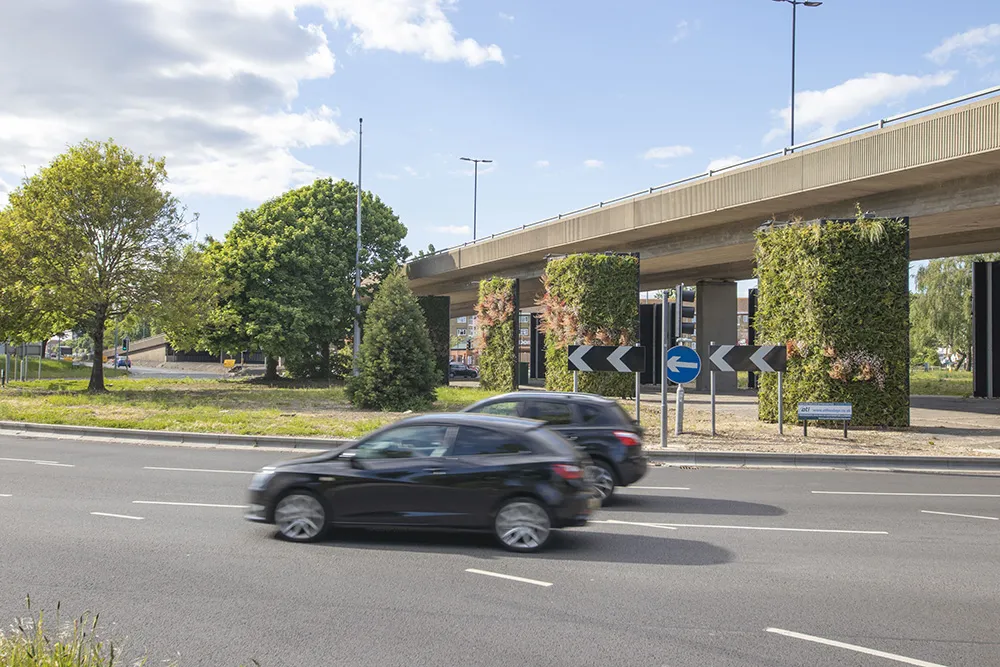The Sheriffhall Roundabout: Mitigating Lane Transgression with the Intelligent Road Stud scheme was recently presented with two awards by ITS (UK). The Forward Thinking Award and UK Scheme of the Year Award follow earlier recognition by four other major industry awards during past year.
Sheriffhall is a new approach to reducing lane transgression on a multi-lane spiral roundabout. Connecting several key roads around Edinburgh and handling upwards of 42,000 vehicles a day, the A720 Sheriffhall Roundabout
April 6, 2017
Read time: 2 mins
The Sheriffhall Roundabout: Mitigating Lane Transgression with the Intelligent Road Stud scheme was recently presented with two awards by ITS (UK). The Forward Thinking Award and UK Scheme of the Year Award follow earlier recognition by four other major industry awards during past year.
Sheriffhall is a new approach to reducing lane transgression on a multi-lane spiral roundabout. Connecting several key roads around Edinburgh and handling upwards of 42,000 vehicles a day, the A720 Sheriffhall Roundabout has the potential to become very congested at peak times, so any incidents can bring about major disruption.
Clearview Intelligence, working alongside BEAR Scotland and6110 Amey, for 505 Transport Scotland, installed an intelligent road stud solution on the roundabout.
This uses Clearview Intelligence active road studs triggered by green phases of traffic signals on the roundabout. As soon as the traffic signal on the entrance to the roundabout turns green, studs embedded in the road surface immediately illuminate and guide drivers to the appropriate lanes of the roundabout. As the traffic signal turns red, all studs on that section switch off, while studs on the next section illuminate as the corresponding traffic signal turns green.
Sheriffhall is a new approach to reducing lane transgression on a multi-lane spiral roundabout. Connecting several key roads around Edinburgh and handling upwards of 42,000 vehicles a day, the A720 Sheriffhall Roundabout has the potential to become very congested at peak times, so any incidents can bring about major disruption.
Clearview Intelligence, working alongside BEAR Scotland and
This uses Clearview Intelligence active road studs triggered by green phases of traffic signals on the roundabout. As soon as the traffic signal on the entrance to the roundabout turns green, studs embedded in the road surface immediately illuminate and guide drivers to the appropriate lanes of the roundabout. As the traffic signal turns red, all studs on that section switch off, while studs on the next section illuminate as the corresponding traffic signal turns green.









